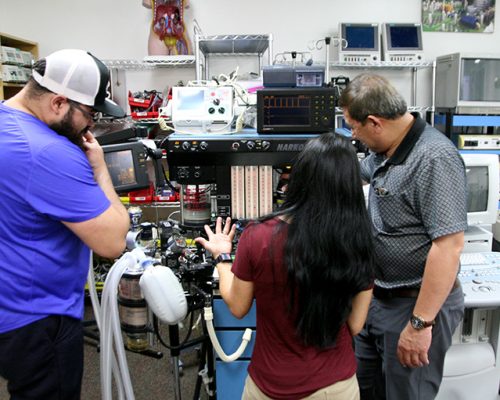Neonatal transport nurses play a critical and specialized role in the healthcare system, providing vital care to some of the most vulnerable patients: critically ill newborns. These highly trained professionals ensure that neonates receive continuous, specialized care during transport from one medical facility to another, often under challenging and high-pressure conditions. At International Biomedical, we recognize and celebrate the indispensable work of neonatal transport nurses and their contribution to neonatal healthcare.
What Does a Neonatal Transport Nurse Do?
A neonatal transport nurse can be a registered nurse (RN) or a neonatal nurse practitioner (NNP). Their primary responsibility is to stabilize and transport critically ill newborns who require specialized medical attention at the NICU that may not be available at the originating hospital. These infants might be premature, have a congenital disorder, or show signs of respiratory distress or other life-threatening conditions. The transport process involves meticulous planning, advanced medical knowledge, and the ability to respond swiftly to changes in the infant’s condition, sometimes at a moment’s notice.
Part of the Neonatal Transport Team
While individual neonatal transport nurses are the cornerstone of the transport team, they provide direct patient care, stabilize the infant, monitor vital signs, and administer necessary medical interventions during transport in the ambulance, helicopter, or other emergency vehicle. However, a coordinated team approach significantly enhances the effectiveness of neonatal transport.
A neonatal transport team consists of specialized healthcare professionals, including a respiratory therapist and support staff, working together to ensure the safe and efficient transfer of neonates requiring urgent medical attention. This team brings together a diverse set of skills and expertise, providing comprehensive care that a single provider might not be able to deliver alone.
Key Responsibilities of a Neonatal Transport Nurse
Assessment and Stabilization
Before transport, neonatal transport nurses thoroughly assess the infant’s condition. This includes monitoring vital signs, administering medications, and implementing life-support measures as needed. Their goal is to stabilize the infant to ensure they can withstand the journey to the NICU.
Medical Interventions
During transport, neonatal transport nurses perform various medical interventions. They may insert IV lines, administer oxygen, perform intubation, or provide other critical care procedures. They carry a range of medical equipment, including transport incubators, ventilators, monitors, and medication, to manage any emergencies that may arise en route.
Continuous Monitoring
The infant’s condition is continuously monitored throughout the transport. Nurses monitor vital signs, blood oxygen levels, and other critical parameters, making real-time adjustments to care as necessary. This vigilance ensures that any deterioration in the infant’s condition is promptly addressed.
Communication and Coordination
Effective communication is crucial in neonatal transport. Nurses coordinate with the referring and receiving medical teams to ensure a smooth transfer of care. They also inform the caregivers about their baby’s condition and progress, reassuring them during stressful times.
Documentation
Accurate and detailed documentation of the infant’s condition and the care provided during transport is essential. This information is crucial for the receiving medical team to continue appropriate care upon arrival.
Skills and Qualifications
Neonatal transport nurses must possess a unique blend of skills and qualifications. They typically have extensive experience in neonatal intensive care units and hold certifications in neonatal resuscitation and pediatric advanced life support.
In addition to their clinical expertise, these nurses must excel in critical thinking and problem-solving, know how to use advanced technology, and remain calm under pressure. Strong communication skills are also vital, as they must convey complex medical information clearly and effectively to various stakeholders.
The Importance of Neonatal Transport Nurses
The work of neonatal transport nurses is indispensable in the continuum of neonatal care. Their expertise ensures that critically ill newborns receive the high-level care they need during transport for better health outcomes. By providing specialized care during the crucial moments of transport, these nurses bridge the gap between medical facilities, ensuring that infants receive timely and appropriate medical attention.
Neonatal transport nurses also play a significant role in supporting families during an incredibly challenging time. Their ability to provide compassionate care and clear communication helps alleviate some of the stress and anxiety parents experience when their newborn requires critical care transport.
Neonatal Transport Nurses: Helping Neonates Arrive Safely to the Neonatal Intensive Care Unit
Neonatal transport nurses are unsung heroes in neonatal care, providing essential services that ensure the safe and effective transport of critically ill infants. Their advanced skills, dedication, and ability to perform under pressure are vital to the survival and well-being of these vulnerable patients.
At International Biomedical, we are proud to support the work of neonatal transport nurses, who truly make a difference. We are committed to providing them with the infant medical equipment they need to continue their life-saving work.









